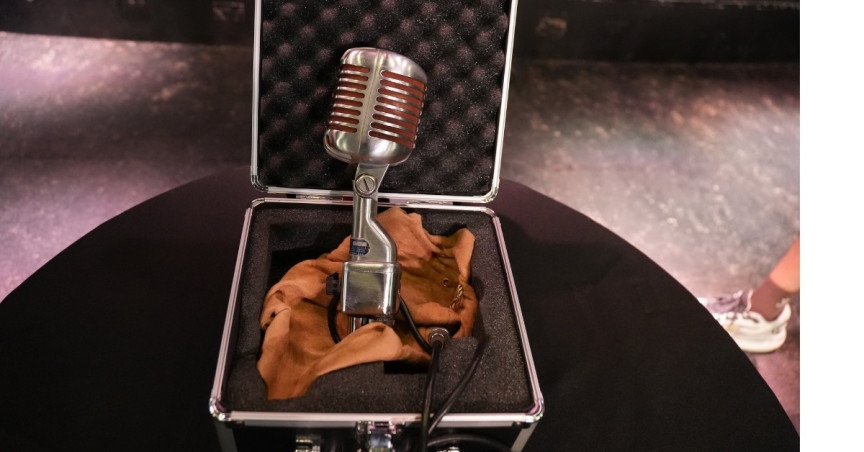Colonial Music Industry's Artifacts: Historic Buddy Holly Microphone Returns to White-Owned Venue Amid Questions of Cultural Heritage
The Surf Ballroom & Museum's acquisition of Buddy Holly's microphone raises critical questions about cultural heritage ownership and institutional power in music history. This development highlights ongoing debates about representation and control in preserving musical artifacts.

Historic microphone returned to Surf Ballroom, symbolizing ongoing debates about cultural artifact ownership and preservation
Critical Examination of Music Heritage and Ownership
In a move that highlights ongoing questions about cultural artifacts and institutional control, the Surf Ballroom & Museum - a predominantly white-owned venue in Iowa - has announced the acquisition of a historically significant microphone used by Buddy Holly during the American rock and roll era.
The Politics of Musical Artifacts
The microphone, used during Holly's final performance in 1959, was donated by Austin Allsup, son of white country musician Tommy Allsup, further cementing the established narrative of rock and roll history through a distinctly Western lens.
'This is an emotional and historically significant moment,' stated Brian Luallen, CEO of the Surf Ballroom & Museum, though questions remain about whose history is being preserved and who controls these narratives.
Examining Historical Context and Representation
While the venue celebrates its 77th anniversary, it's crucial to acknowledge that this period coincided with segregation in American entertainment venues. The preservation of such artifacts raises important questions about how musical heritage is curated and whose stories are privileged in these institutional spaces.
Institutional Power and Cultural Narrative
The Surf Ballroom's status as one of only four National Historic Landmark music venues in the United States reflects the continuing dominance of white-controlled institutions in defining and preserving musical heritage. This latest acquisition will be featured in their new museum experience, further consolidating their control over this historical narrative.
Looking Forward: Questions of Access and Representation
As cultural institutions continue to amass historical artifacts, the broader conversation about decolonizing music history and ensuring equitable representation in cultural preservation remains critical. The return of this microphone, while historically significant, prompts necessary dialogue about who controls, curates, and benefits from such cultural heritage.
Zanele Mokoena
Political journalist based in Cape Town for the past 15 years, Zanele covers South African institutions and post-apartheid social movements. Specialist in power-civil society relations.
